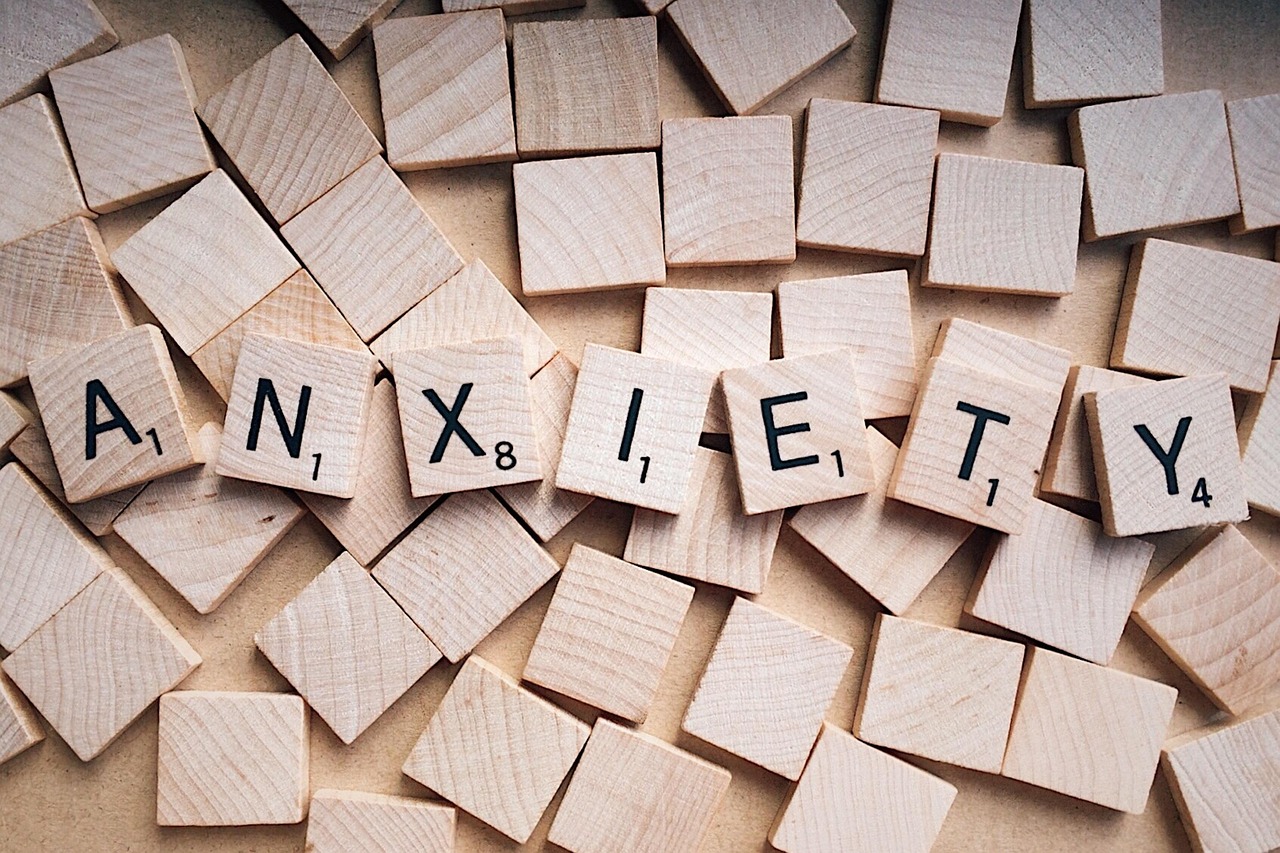Anxiety is an emotion individuals typically feel during phases of constant mental or physical pressure, something that usually occurs during stressful periods of their lives. Feelings of anxiety are caused by various factors, including genetics, environment, and imbalances in neurotransmitters such as serotonin, dopamine, and gamma-aminobutyric acid (GABA), which are primarily regulated within the brain rather than specific glands like the adrenal medulla.
Author: Agapi Gialitaki
Recognizing it
Contrary to popular belief, anxiety may also be beneficial in a sense, as it also serves as a natural response to situations perceived as dangerous or threatening. However, recent studies indicate a significant rise in anxiety levels over the past century, raising concerns about its impact on modern society. People are increasingly starting to feel anxiety largely due to their mental health or stressful environments, rather than experiencing it in a helpful or beneficial way to protect themselves. This is why the need to spread awareness of anxiety, its causes and its symptoms is becoming or perhaps has already become increasingly important. But how can an individual separate feelings of temporary stress or nervousness from actual symptoms of anxiety?
Symptoms of anxiety may begin developing during mid to late childhood or adolescence. According to researchers from the American Academy of Family Physicians (AAFP), anxiety disorders are among the most common psychiatric conditions in young people, affecting nearly 1 in 12 children and 1 in 4 adolescents. This is a shockingly large proportion of anxiety-riddled youth. During childhood or adolescence, anxiety may manifest as separation anxiety, social anxiety, or specific phobias. As children grow into adolescence, their worries often shift toward academic performance, social acceptance, and self-image. It is no secret that though your childhood and adolescent years do not entirely define you as a person, they do set up the foundation of who you will become, and if an individual undergoes several stressful experiences during these formative years for a prolonged period of time, it may ultimately lead to them developing an anxiety-related mental disorder.
Teenagers often struggle with anxiety without even realizing it. Parents or guardians often place the blame for this distress onto puberty and hormonal changes, but that isn’t always the case. In many instances, students experience discomfort in school due to the way academic pressure is imposed on them. For example, they are expected to learn multiple subjects simultaneously and undergo written examinations, which can be overwhelming when mixed with the emotional and hormonal changes of adolescence. Other causes include peer pressure, loneliness, and difficulties in making friends. School environments can feel isolating, especially when opportunities to meet new people or to form close bonds with multiple individuals are limited. It is important to know that you have people around you that support you even when it does not really feel like that way. If feelings of anxiety are not addressed, they can interfere with school life, social life, and overall well-being. Persistent feelings of distress may indicate an anxiety disorder, in which case seeking guidance from a professional is highly recommended.
This is why it is extremely important to know how to spot anxiety, and therefore be able to recognize the signs or any symptoms that you develop that could hint at the presence of anxiety. More surface-level symptoms that may be easier to discern include:
- Feeling dizzy or lightheaded for no particular reason.
- Frequent seemingly unprompted feelings of nausea or queasiness.
- Breathing difficulties, such as shallow breathing or chest breathing.
- Chest pains, stomach pains, muscle pains, etc.
- Experiencing panic attacks.
- Restlessness.
- Feeling anxious/vulnerable or tense.
- Constantly or often feeling as if you are being watched.
- Overthinking about things that have yet to happen.
- Feelings of depression or emptiness.
- Often feeling as if you are in need of reassurance and worrying about what others may think of you.
It is important to note that although we have access to several articles, books or even entire websites that allow us to learn about anxiety and recognize its potential manifestation within an individual, it is still not sufficient information to allow us to self-diagnose ourselves or diagnose others unless we are in possession of the right knowledge and means to make a formal diagnosis. Though the aforementioned tips can be symptoms of anxiety, they may also be symptoms of other disorders, diseases or purely temporary due to specific environmental factors. This is why, in the case that you or someone you know is experiencing such symptoms and is suspicious that they may indeed have anxiety, it is important they seek professional advice in order to diagnose and learn how to deal with it.
Confronting it
Say an individual discovers that they may, in fact, have anxiety. The first step they can take in their journey of overcoming it is acceptance. Accepting the fact that you need help or that you are going through a difficult thing is an important step of the process. The second step is to try to understand your current emotions. Why are you feeling this way? What do you wish could be different? In order to relieve some of the tension that is caused by anxiety, it is important to know that what you are going through will not last forever and it is something that you can eventually conquer. It is something almost everyone goes through at some point during their lives and there are ways to deal with it, some of which being:
- Finding someone you feel safe with and comfortable enough to express your feelings with.
- Discussing your emotional and overall mental state as well as your thoughts with a specialized professional.
- Making a schedule for yourself in order to practice the feeling of control; this will make you feel like you have more of a say over what goes on in your life and perhaps make you feel more capable of tackling any issues you may be facing.
- Making time for yourself.
- Exercising such as walking, running or doing any kind of physical exercise.
- Gardening (witnessing the accomplishment of the creation of live, even from a little plant, can give you a sense of peace and self-development).
- Meditating in a quiet place you feel safe in.
- Reading and journaling (write entries about your day and track any significant emotions you felt or overwhelming thoughts that you had).
- Focus only on what you can control—don’t waste energy stressing over things beyond your power. If have any control in a situation, even if it is a very little amount, you have the possibility to take action.
Of course, all of this advice is easier said than done since every situation is different and we are humans, not robots that are able to handle any situation without trial and error or emotion getting in the way. Nevertheless, you never know just how big of an impact a small change or effort may have in your life. Stay consistent and remember that if there is a will, there is a way.
Overcoming it
Overcoming anxiety is a gradual process that requires patience, self-awareness, and effort. While anxiety may feel overwhelming, there are effective strategies that can help you regain control of your peace and help you build resilience.
One approach is to develop coping mechanisms that allow you to battle anxiety in slower (results take time to develop) but effective ways that have lasting effects. Practicing mindfulness and relaxation techniques, such as deep breathing and meditation can significantly reduce stress and increase mental clarity. Engaging in physical activities like exercise, yoga, or even simple walks can also release tension as well as boost your mood. You should also prioritize on working on your routine, since sleep, diet and physical activities also play a crucial role in your emotional well-being.
Equally important is tracking and confronting negative thought patterns. Anxiety often magnifies fears and worries, making situations seem much more stressful or scary than they actually are. Challenging these irrational thoughts and shifting your focus towards finding solutions can help break the cycle of persistent worry. Seeking support from friends, family, or a mental health professional can also provide extremely helpful guidance and reassurance.
Conclusion
Ultimately, overcoming anxiety is not about eliminating it completely but rather learning how to navigate and manage it in a way that fosters inner strength and confidence. Each small step toward self-care and self-awareness contributes to a more empowered and balanced life. No matter how much effort you put into improving your mental health, overcoming anxiety can still feel challenging. There will be days where you think you can do anything while on other days even getting out of bed is a struggle. This is all completely normal, and you should think that there is something wrong with you.
Anxiety is tough to navigate, and you should not let anyone pressure you into quickly overcoming it; recovering from periods of anxiety takes time, but it is a process that is extremely worthwhile and rewarding. You may feel that you burden those around you with your emotions but that is not the case. You deserve to heal at your own pace. Nevertheless, you must also remember that you do not have to go through this entire process on your own. There are people ready to help you at any time, whenever and for whatever you may need.
Edited by: Marina Varnava
Cover image: WOKANDAPIX from Pixabay, 30.01.2017



